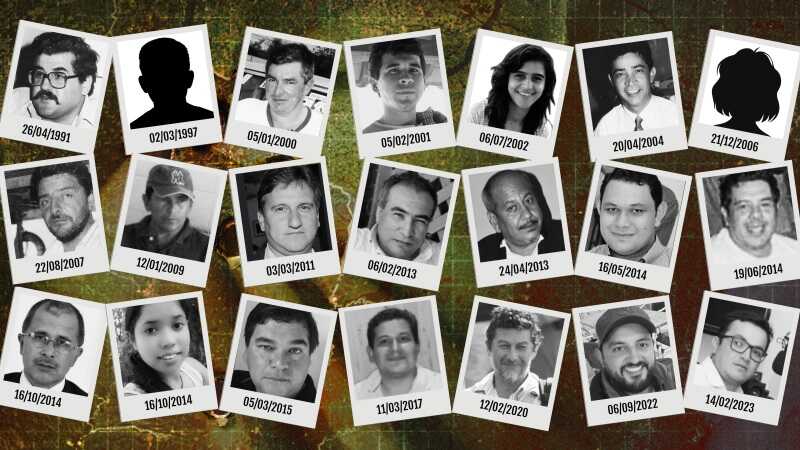Journalists revive investigations silenced by murder in Paraguay

Journalists revive investigations silenced by murder in Paraguay
Forbidden Stories with its partners at the Organized Crime and Corruption Reporting Project (OCCRP) and five media outlets in Latin America and Europe will be publishing investigations on Paraguay.
Three of the stories seek to continue the leads that murdered Paraguayan journalists were following.
On September 6, 2022, journalist Humberto Coronel was shot eight times and killed as he was leaving Radio Amambay 570 AM, where he worked in Pedro Juan Caballero, a city on Paraguay’s eastern border with Brazil. The assailant opened fire from a motorcycle and fled the scene.
Coronel, 39, became the 18th journalist killed in Paraguay in the past three decades — and the seventh in Pedro Juan Caballero, a city deeply influenced by organized crime.
Now, a consortium of journalists aims to pick up where Coronel and others left off. Forbidden Stories, a Paris-based nonprofit that continues the work of silenced journalists, has launched the Paraguay Alliance in collaboration with the Organized Crime and Corruption Reporting Project (OCCRP) and five other media partners across Latin America and Europe.
Their investigations, based on dozens of interviews, on-the-ground reporting, and access to judicial documents, seek to expose the networks of organized crime and corruption operating in Paraguay. On Tuesday, the group released three new stories.
One report reveals that Paraguayan prosecutors failed to cooperate with Brazilian authorities in the investigation of the drug trafficker known as “Minotauro,” who is allegedly tied to the 2020 assassination of journalist Lourenço “Leo” Veras in Brazil.
Another examines the death of Eulalio “Lalo” Gomes, a politician killed in a shootout with police during a 2024 raid on his home — just hours after he was indicted on money laundering and criminal association charges.
A third report details how Paraguay’s lax firearms oversight has allowed the country to become a hub for arms trafficking, with importers flooding the market with more weapons than the country could possibly absorb.
According to the Mesa de Seguridad para Periodistas, a nonprofit based in Asunción that tracks violence against the press, the masterminds behind journalist killings have gone unidentified in roughly 90 percent of cases since 1991. The group has recorded more than 400 attacks on journalists in that time.
“Practicing journalism in Paraguay — especially in the border regions — is a daily act of courage,” said José “Pepe” Costa, director of the organization. “More and more journalists have to work cautiously and self-censor to avoid being attacked, assaulted, or threatened.”
The journalists involved in the Paraguay Alliance say they hope their continued investigations will serve as both a deterrent and a tribute — not only to Coronel, but to the many reporters who have risked, and lost, their lives in pursuit of the truth.
That’s how Gloria Coronel remembers her brother Humberto.
“He was always talking about discrimination, was always talking about illegal things that were going on,” Gloria said. “I warned him that that was dangerous, but he said that people needed to know what was happening, they needed to know the truth.”
The Paraguay Alliance, coordinated by Forbidden Stories and OCCRP is a collaboration with Cuestión Pública, Revista piauí, DDOSecrets, La Nación (Argentina), La Diaria, and IrpiMedia. ABC Color group collaborated as a republication partner of the stories.
Распечатать

